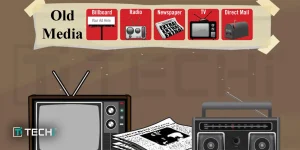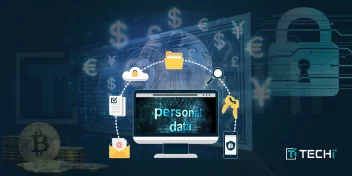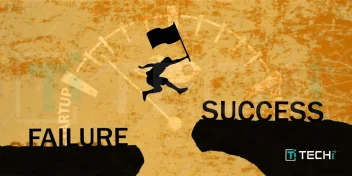Though we have, over the past few years, become accustomed to rather strange, aggressive ideas from those who run the movie and music businesses, the latest move from the RIAA and MPAA is a little astounding.
Today, the Electronic Frontier Foundation, an organization dedicated to defending internet users’ rights, outlined some of the suggestions made by the media conglomerates for protecting their content. They, along with many other players, were asked to weigh in on how intellectual property should be treated in a changing, networked world.
And you know what the MPAA and RIAA suggested? Well, among other things:
- Anti-infringement spyware to be installed on users systems
- Filtering technology on internet service provider’s networks to prevent the spread of copyrighted material
- ‘Inform’ and ‘educate’ (i.e. harass) entrants to the US about the ‘dangers of pirated material’
- Intimidate countries that do not agree with these policies, using US economic clout to threaten them
- Use federal resources to employ agents to crack down on copyright thieves
So, how does that sound? Having spyware installed on your system and monitoring what you’re watching? Having your ISP filtered and throttled so that the MPAA and RIAA can control what gets distributed around the internet? Super, right?
But it isn’t simply the stunning sense of entitlement and invasiveness that’s the issue here. There’s something bigger at stake than simply ‘this is not how you should treat your customers’.
What the RIAA and MPAA have failed to understand is that new technologies like the web don’t simply represent new ways to pirate material – they are part of a seismic change in culture. By failing to understand that this is a cultural and not only technological or economic shift, media businesses are on the brink of becoming obsolete due to an obsession with control.
Technically speaking, you might articulate the change in how we think of these things by talking about ‘the economics of scarcity’ vs. the ‘economics of abundance’.
See, physical media is hard and expensive to create and distribute – not only do you have to find the materials to press CDs or print books, you have to then distribute them on trucks and trains and what-have-you. This creates an economic system based on scarcity, or as we more traditionally think of it, supply and demand. Limited by physical constraints like materials and labor, you make a certain number of things and then you set the price based on how many people want that thing.
But when you switch to digital, this scarcity often disappears. An MP3 or movie file or eBook is just ones and zeroes. After the initial costs of creation are done with, creating a new copy costs almost nothing. Suddenly, things are abundant – there is no physical limit on how many of something can be made – and this changes things.
But that’s only the economic side of things. Culturally, there has also been a shift in how we think of accessing content like TV shows or films or music. Whereas once it seemed to make sense to save our pennies for new records or films, it’s now much harder to justify that expense because there is so much available for free, legitimately or not. You know this – it’s everywhere around the web, because no-one can control the spread of information.
People will often talk about this in terms of ‘stealing’ or ‘entitlement’ – which has it merits – but also misses the point. Once a person has experienced the freedom of something like Napster or Bittorrent, it’s hard to put that genie back in the bottle. It isn’t about ‘thieving’ as much as it is this: once you know what it’s like to access culture with such freedom, going back to the basics of plunking down 20 bucks for a iTunes movie you can’t copy, can’t take to your friends house or can’t watch on your PS3 not only feels strange, it feels plain backwards and absurd.

By attempting to replicate the scarcity model in the digital age, media businesses have made clunky DRM’ed products and have alienated consumers, and they are voting with their wallets. It might seem sensible to try crack down on consumers, but it’s like trying to nail jello to wall: you can’t do it, and it wasn’t a very good idea in the first place.
That may be controversial – and might even seem to support piracy – but that isn’t the case.
There are solutions to this problem, among the best of which is something like ‘monetizing the pipes’ – i.e. charge for the distribution. Another option is something like eMusic, which makes you pay a set amount for a certain number of MP3s a month. More options include what Mike Masnick calls ‘finding other scarcities’ like musicians making money from live shows and merchandise but giving the music away for free.
But the point boils down to this: the world has changed. The internet works on principles of openness and exchange, and information and content ricochet around at an amazing rate. You just can’t control that without unfairly limiting people’ experiences of the web. This is what the MPAA and RIAA have failed to understand. They are still working in a mindset that is based on scarcity – we have a limited amount of product, and we have to protect it – and that’s an ideal that certainly was noble and fair years ago.
But when culture and technology have changed so drastically, and digital information fundamentally works through copying and spreading, it’s also a naive one. Rather than trying to lock down the entire internet and the exchange of media, those concerned should be looking to establish new business models or new products that draw people in (like Avatar, for example).
After all, if they don’t, it’s not we who will lose. People will continue to create, and they will find ways to finance and distribute them using new tech. The MPAA and RIAA, on the other hand – well, it may already be too late for them and the lumbering dinosaurs who lead them.





Karl
One can put a dress on a pig, but it’s still a pig. The facts are that, under current law, it’s stealing. If I were a recording artist, I, like everyone else, would prefer to be paid for my work. If I record a song, with the hopes of making a sustainable living, I wouldn’t want everyone thinking they’re entitled to my work for free, and no amount of superfluous rhetoric from those who are attempting to justify their STEALING is going to change that.
I am quite sure that all those who advocate STEALING of others’ work would be aghast at someone trying to steal their work, yet they continue to attempt to justify their own thievery by labeling at a “cultural shift.”
Stealing is stealing, and it doesn’t make it any more right whether one person or millions do it.
Luis
I didn’t get my college education for “free”. I worked nights and weekends to be able to pay for my tuition and living expenses, and as a photographer/filmmaker, I also used my hard earned money to buy a camera and lenses, as well as film, to be able to learn my craft and be proficient at it. I am not a conglomerate or “the system” , I am just one of the many honest, hard working people who toil to make a living, and that’s the majority in the music, publishing, magazine industry or whatever. We don’t make millions of dollars. I agree that technology has changed things around, so If you are a musician and want to spend your own time and money in a recording studio (Do they give you the rec time for free?) and sell the product on the Internet, that’s great. But you will spend more time selling the product than being on the road. No one has the right to copy your work for “free”. Newspapers are closing left and right because they started giving away the news for “free” on the internet. Of course, I imagine that the photographers, reporters, editors and printers gave away their time for “free” without a salary. Right? Whatever excuse these techies have for stealing someone else’s work is total nonsense. I am sick and tired of this idea of Internet Welfare. I just published a book of my still photography and I’ll be darned if someone feels that they can steal my work for “free”.
LordOfRuin
Did we try and support the failing technology that was telegrams? No, we evolved. Did we try to protect traditional open hold shipping? No, we evolved to containers. Oh, hold on, I think the American government did try to protect old traditional shipping, which killed the American shipping industry. Mmm! Not entirely sure about the validity of that, but I’m sure someone will.
Anyway, my point is that this article is correct on so many levels. What the media companies have failed to notice is that they have lost “the reason to buy” argument.
Hec, even when I buy a CD, the tracks have been screwed with to such a degree due to the “loudness wars” that owning it doesn’t make it sound any better. I’d like more SACD’s to be available, but people seem to actually prefer lower bit rate recordings. What on earth is going on?
None of this seems effected by numerous studies that conclude that P2P users actually shell out more for their genuine collections than non-P2P users. (that’s me right there). I own media that is unreleased in my country, because I ‘found’ it on the net, liked it, and had to import.
It’s time for Big Government to stand up to Big Corporations, and tell them that their money doesn’t buy an oppressive, restrictive government who’s only goal is the protection of old business models, and big money.
This goes just as well for Big Pharma too.
sleze
With the exception of the RIAA’s Steven, I think you are just preaching to the choir here.
But hopefully a Congressional staffer will read this article and show it to his congressman – it is very well written.
Woboy
The Postal Service is a fitting band for a video sponsored by UPS.
Peter
I’m sure the media companies can see their future and it scares them witless.
I’m sure some are trying to adapt but, like the dinosaurs, most won’t do it fast enough to survive, hence the need to try and slow everyone down.